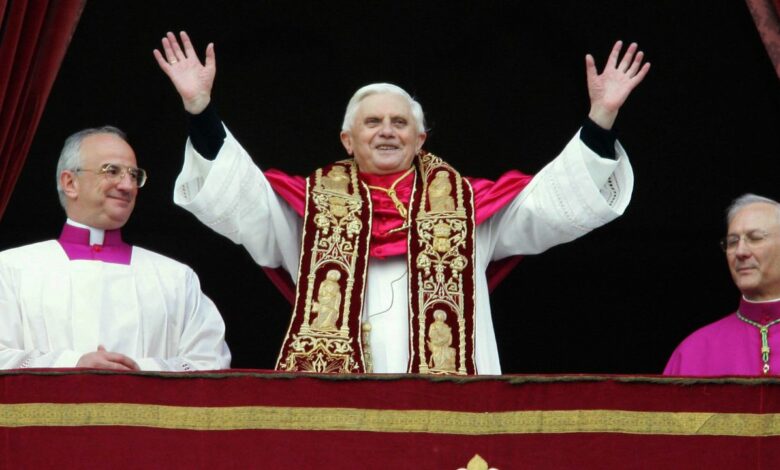
Benedict, who was the first pontiff in almost 600 years to resign his position, rather than hold office for life, passed away on Saturday, according to a statement from the Vatican.
“With sorrow I inform you that the Pope Emeritus, Benedict XVI, passed away today at 9:34 in the Mater Ecclesiae Monastery in the Vatican,” the Director of the Press Office of the Holy See, Matteo Bruni said.
“Further information will be provided as soon as possible.”
News of his death came days after Pope Francis asked the faithful to pray for Benedict, saying he was “very sick.”
“I want to ask you all for a special prayer for Pope Emeritus Benedict who sustains the Church in his silence. He is very sick. We ask the Lord to console and sustain him in this witness of love for the Church to the very end,” Francis said at his general audience on Wednesday.
His health had been in decline for some time.
Benedict stunned the Catholic faithful and religious experts around the world on February 11, 2013, when he announced plans to step down from his position as Pope, citing his “advanced age.”
In his farewell address, the outgoing pope promised to stay “hidden” from the world, but he continued to speak out on religious matters in the years following his retirement, contributing to tensions within the Catholic Church.
A powerful and polarizing voice
Benedict was a powerful force in the Catholic Church for decades.
Born Joseph Ratzinger in Germany in 1927, he was the son of a policeman. He was ordained as a priest in 1951, made a cardinal in 1977, and later served as chief theological adviser to Pope John Paul II.
One of his most significant steps up came in 1981 when he took over as head of the Congregation for the Doctrine of Faith, the Vatican office that oversees “the doctrine on the faith and morals throughout the Catholic world,” according to the Vatican.
Ratzinger became known as “Cardinal No” stemming from his efforts to crack down on the liberation theology movement, religious pluralism, challenges to traditional teachings on issues such as homosexuality, and calls to ordain women as priests.
He was elected pope in April 2005, following John Paul II’s death.
He was known to be more conservative than his successor, Pope Francis, who has made moves to soften the Vatican’s position on abortion and homosexuality, as well as doing more to deal with the sexual abuse crisis that has engulfed the church in recent years and clouded Benedict’s legacy.
In April 2019, Benedict discussed the sex abuse crisis in a public letter, claiming that it was caused in part by the sexual revolution of the 1960s and the liberalization of the church’s moral teachings.
In January 2020, Benedict was forced to distance himself from a book widely seen as undercutting Francis as he considered whether or not to allow married men to become priests in certain cases. The book, “From the Depths of Our Hearts,” argued in favor of the centuries-old tradition of priestly celibacy within the Catholic Church. Benedict was originally listed as co-author, but later clarified that he had only contributed one section of the text.
A year later, Benedict came under fire over his time as archbishop of Munich and Freising, between 1977 and 1982, following the publication of a Church-commissioned report into abuse by Catholic clergy there.
The report found that while in the post he had been informed of four cases of sexual abuse involving minors – including two that had occurred during his time in office – but failed to act. It also revealed Benedict had attended a meeting about an abuser identified as Priest X. Following the report’s publication, Benedict pushed back against accusations that he knew in 1980 that this priest was an abuser.
In a letter released by the Vatican amid the furor, Benedict wrote that he was “of good cheer” as he faced “the final judge of my life,” despite his shortcomings. He also issued a general apology to survivors of abuse.
CNN’s Richard Allen Greene and Hada Messia contributed to this report.




